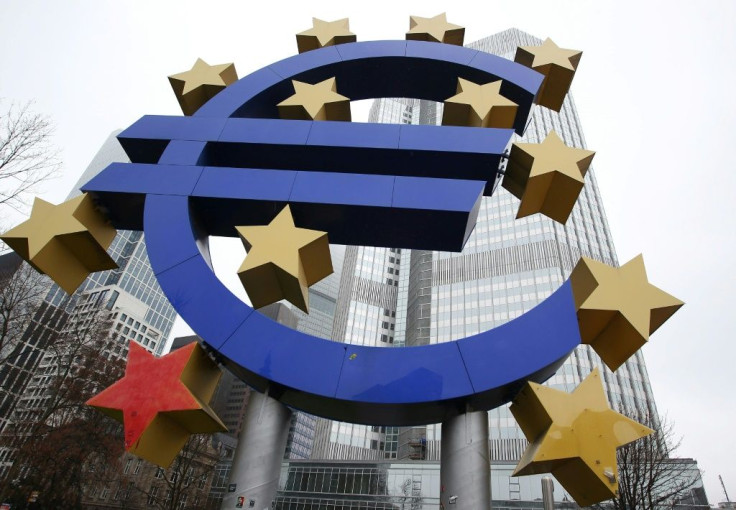Worsening Pandemic Poses 'Serious Risks', ECB's Lagarde Warns
European Central Bank chief Christine Lagarde warned on Thursday that the pandemic still poses "serious risks" to the eurozone economy as concerns grow about new virus variants and sluggish vaccination campaigns.
The Frankfurt institution's governing council held back from tweaking its ultra-loose monetary policy at its first meeting of the year, having already topped up up support in December.
Lagarde stressed that "ample monetary stimulus" remained essential to steer the 19-nation currency club through the Covid-19 upheaval, and that the ECB stood ready to do more as needed.
"The pandemic continues to pose serious risks to public health and to the euro area and global economies," Lagarde told an online press conference.
The start of mass vaccination drives in the European Union was "an important milestone", she said, but the rollout has got off to a bumpy start in many nations.
The emergence of more contagious virus variants, first discovered in Britain and South Africa, has added to nervousness at a time when many countries are already struggling to bring down infection numbers.
Europe's top economy Germany this week extended its partial lockdown until February 14, and Chancellor Angela Merkel has not ruled out border checks to slow the spread of the new strains.
France and Spain have tightened their evening curfews, while non-essential shops and leisure facilities are closed across much of the continent.
The latest virus setbacks "are disrupting economic activity," Lagarde said, noting that the services sector was hit especially hard.
"The intensification of pandemic poses some downside risks to the short-term economic outlook," she added.
The ECB in December forecast 3.9 percent growth for 2021, after an estimated contraction of 7.3 percent in 2020.
Lagarde said the ECB's forecasts "remain valid" for now, as they took into account lockdowns persisting through the first quarter coupled with a gradual start to vaccinations.
The former French finance minister also reiterated her plea for European governments to support the ECB's efforts through fiscal policy.
She urged European Union members to speed up the ratification of a recently agreed 750-billion-euro recovery fund, saying it had a "key role" to play in financing the region's bounce-back.

Under Lagarde, the ECB took unprecedented steps last year to cushion the impact of Covid-19 on the euro economy.
Its biggest weapon is a pandemic emergency bond-buying scheme, known as PEPP, that was in December topped up by 500 billion euros to reach a total envelope of 1.85 trillion euros. The scheme was also extended to March 2022.
The bank has also offered ultra-cheap bank loans and held interest rates at historic lows.
The goal of the measures is to keep borrowing costs low to encourage spending and investment in the 19-nation currency club, in a bid to boost growth and inflation.
But eurozone inflation has stayed stubbornly low for years and even turned negative in 2020.
By the ECB's own estimates, price growth will gradually inch up to 1.4 percent by 2023, still far off the bank's target of just under two percent.
In December, inflation stood at minus 0.3 percent.
Analysts say inflation could bound higher later this year, powered by pent-up consumer demand once lockdowns start easing.
But any boost is expected to be short-lived, they caution.
Lagarde agreed that inflation was "likely to increase in the coming months", partly also due to the end of a temporary sales tax cut in Germany from January.
But she said "underlying price pressures are expected to remain subdued due to low demand in tourism and travel sectors, and the appreciation of the euro against the dollar."
The euro has risen by more than 10 percent against the greenback since late February, complicating ECB efforts to push up inflation.
A stronger euro makes imports cheaper, keeping a lid on consumer prices, while exports become less competitive, hurting growth prospects.
Lagarde said the governing council was monitoring exchange rates "very carefully".
For now, the ECB "remains happy at the sidelines and has kept all options open," said ING bank economist Carsten Brzeski.
"In the absence of any severe economic accident, the ECB is likely to stick to this line at least until late summer," he added.
© Copyright AFP 2024. All rights reserved.





















